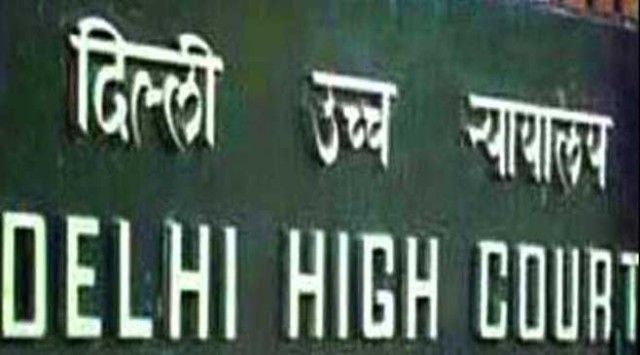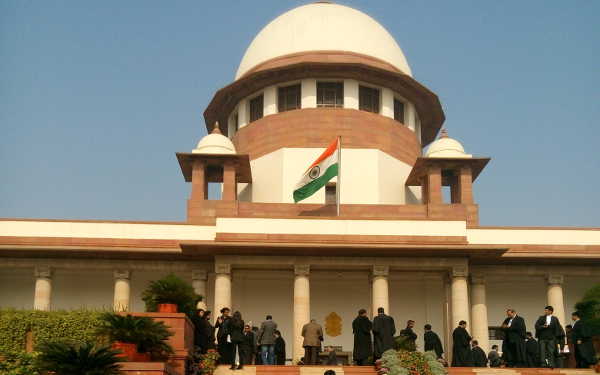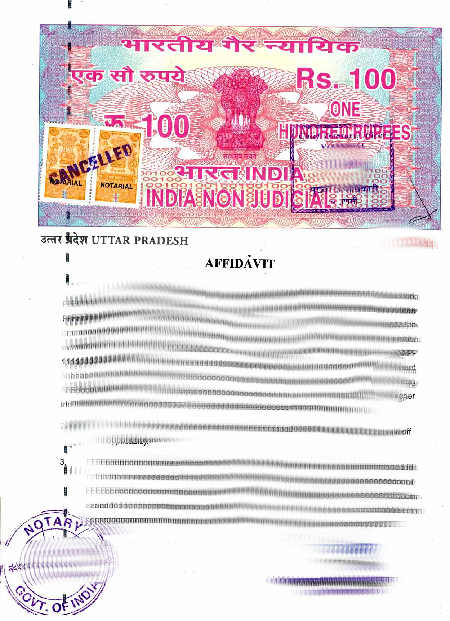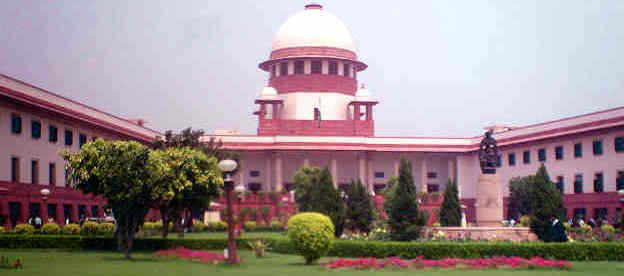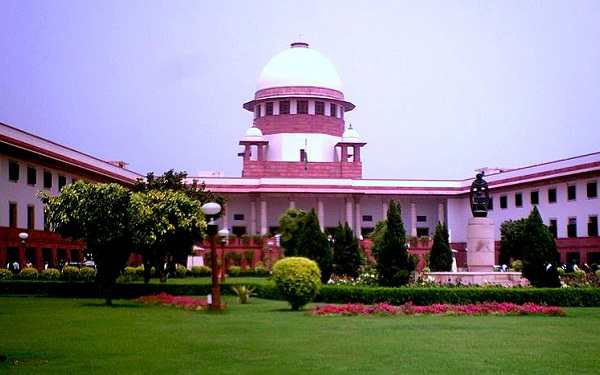Legislative Pivot of Section 3 of the Competition Act, 2002 and the Argument of “Relevant Turnover” as against “Total Turnover”: Key takeaways from Excel Crop Care Ltd. v. Competition Commission of India (Supreme Court)
The Competition Act, 2002 is a regulatory legislation enacted to maintain free market so that the Adam Smith’s concept of invisible hand operates un-hindered in the background.[1]
Brief background:
The Hon’ble Supreme Court of India took upon itself, in the matter of Excel Crop Care v. Competition Commission of India[2] (hereinafter referred to as “Excel”), the task of answering certain crucial questions of law relating to the Competition Act, 2002 (hereinafter referred to as the “Act”), which came before the Hon’ble Court for adjudication. These questions can be accounted for as follows:
- Section 3 of the Act having been notified on 20th May, 2009 is prospective or retrospective in operation?
- Is there any difference between collusive bidding and bid rigging?
- Whether penalty under Section 27(b) of the Act has to be on “total turnover” of the company covering all its products or it is relatable to “relevant turnover” viz. relating to the product in question in respect where-of the provisions of the Act are contravened?
The factual premise of this case (Excel) rests on the following brief facts among others:
On 28th March, 2009, the Food Corporation of India (hereinafter referred to as “FCI”) issued ‘Notice Inviting Tender’ (hereinafter referred to as “NIT”) for manufacture of Aluminium Phosphide Tablets (hereinafter referred to as “APT”) of 3 grams, with the last date for the submission of the bids being 08th May, 2009. The bids were opened on 01st June, 2009, and, on 17th June, 2009, the bidders were called for negotiations. The controversy erupted when on 04th February, 2011 the FCI addressed a letter to the Competition Commission of India (hereinafter referred to as “CCI”) complaining of an anti-competitive agreement allegedly arrived at between M/s. Excel Crop Care Ltd. (hereinafter referred to as “ECCL”), M/s. Sandhya Organics Chemicals (P) Ltd. (hereinafter referred to as “Sandhya”), M/s. United Phosphorous Ltd. (hereinafter referred to as “UPL”) and M/s. Agrosynth Chemicals Ltd. (hereinafter referred to as “ACL”), in relation to tenders issued by FCI for ATP between the years 2007 and 2009. The CCI entrusted the matter to the Director General (hereinafter referred to as the “DG”) for investigation. The DG submitted its report on 14th October, 2011 affirming the allegations made by FCI, stating that, ECCL, Sandhya and UPL had entered into an anti-competitive agreement, which was violative of Section 3(3) of the Act. After receiving the report of the DG, the CCI issued notices to ECCL, Sandhya and UPL, asking them to raise their objections to the report of the DG, if at all they wanted to. Objections were filed by ECCL, Sandhya, and UPL, and after hearing them, CCI passed an order dated 23rd April, 2012 whereby it was held that, ECCL, Sandhya, and UPL engaged themselves in anti-competitive activities within the meaning and purport of Section 3 of the Act, and hence, entitled themselves to a penalty of 9 % on the average total turnover for last three (3) years respectively. Against the order of CCI appeals were preferred before the COMPAT (Competition Appellate Tribunal) under Section 53-B of the Act. In the appeal preferred before the COMPAT, the issue on merits was decided against ECCL, Sandhya, and UPL respectively, vide order dated 29th October, 2013. Appeal was preferred before the Hon’ble Supreme Court against the order of COMPAT.
Bone of Contention:
The principal bone of contention before the Hon’ble Supreme Court raised by ECCL, Sandhya, and UPL was as regards to the applicability of Section 3 of the Act. It was contested by them that Section 3 of the Act came into operation on 20th May, 2009 and the NIT was issued by FCI on 28th March, 2009 with the last date of submission being 08th May, 2009, thus, it was asserted by ECCL, Sandhya, and UPL that FCI cannot take the benefit of Section 3 of the Act which came into operation much later in time, that is, post the issuance of NIT by FCI. The second line of argument that was adopted by ECCL, Sandhya, and UPL was that, while the COMPAT had referred to the Explanation appended to Section 3(3) (d) of the Act to arrive at the conclusion that 08th May, 2009 cannot be the determinative date on which the bid was submitted as “manipulating the process of bidding” is also covered by virtue of the Explanation appended to Section 3(3) (d) of the Act and the process of bidding continued even after 20th May, 2009, the Hon’ble COMPAT failed to take note of the fact that ‘bid rigging’ is different from ‘collusive pricing’, that is to say, since the allegations against ECCL, Sandhya, and UPL were apropos ‘identical pricing or identical reduction in pricing’, the same should squarely fall within the meaning of the term ‘collusive pricing’ and the Explanation to Section 3(3) (d) of the Act will have no role to play. The last line of argument that was adopted by ECCL, Sandhya, and UPL was that, the penalty provided under Section 27(b) of the Act was to be levied on the ‘relevant turnover’ of the enterprise and not on the ‘total turnover’ of the enterprise, and CCI grossly erred in levying penalty on the total turnover of the enterprise, failing to take note of the fact that, in case of a multi-product enterprise, the flouting enterprise will be made to suffer more harm than what was actually contemplated by the legislature.
Law enunciated by the Hon’ble Supreme Court of India:
The Hon’ble Supreme Court of India after analysing and appreciating the legislative premise, on which Section 3 and Section 27 of the Act are based, held as follows:
- Section 3 is the first provision in Chapter II of the Act. Chapter II of the Act deals with prohibition of certain agreements, abuse of dominant position and regulation of combinations.
- That inquiry into the tender of March, 2009 by CCI is covered by Section 3 of the Act in as much as the tender process, though initiated prior to the date when Section 3 of the Act became operational, continued much beyond 20th May, 2009, the date on which the provisions of Section 3 of the Act came into force. The role of ECCL, Sandhya, and UPL did not come to an end with the submission of bid on 08th May, 2009.
- A cursory look into the below mentioned precedents would make it clear that rule against retrospectivity may not apply to a declaratory statute.[3]
- In Rajagopal Reddy (Dead) by LRs & Ors v. Padmini Chandrasekharan (Dead) by LRs[4], it was held that merely because an agreement relating to benami transaction was entered into prior to coming into force of the Benami Transactions (Prohibition) Act, 1988, it would not mean that the provisions of the said 1988 Act would not apply retrospectively to such an agreement and render it void.
- In Kingfisher Airlines Competition Commission of India[5], it was illustratively held that, if X and Y enter into agreement of sale of land on 02nd January, 2008 and it is agreed between them that the sale deed would be executed on or before 02nd January, 2009, but in the meanwhile, that is, on 10th August, 2008, the Government decides to impose a ban on transfer of the land and declares that any such transfer, if effected, shall be void, then, the question to be answered would be, could the parties say that since their agreement being prior to the Government putting a ban on transfer, their case is not covered by the ban? The answer will have to be in the negative, as on the day the contract is sought to be completed, it is prohibited.
In the present case, had the anti-competitive agreement between ECCL, Sandhya, and UPL was executed and was thereby completed in its entirety prior to 20th May, 2009, that is, nothing further was left to be done and all actions contemplated by the agreement had already been accomplished, then, it could perhaps be argued that the Act was not applicable to such an agreement or actions taken pursuant to the agreement. However, this is not the factual position in the instant case as the purported arrangement entered into by ECCL, Sandhya, and UPL continued to be acted upon even after 20th May, 2009.
- The argument predicated on the premise that Explanation appended to Section 3(3) (d) of the Act speaks of ‘bid rigging’ and not ‘collusive pricing’, is a futile argument, much because, collusive bidding and bid rigging are one and the same, and of the various other forms of bid rigging such as: cover bidding (courtesy bidding), bid rotation and bid allocation, “level tendering” (that is, bidding at the same price) is one such chief form. Bid rigging is a particular form of collusive price-fixing behaviour by which firms co-ordinate their bids on procurement or project contracts.
- Under Section 27(b) of the Act, penalty can be imposed under two contingencies, namely, where an agreement referred to in Section 3 of the Act is anti-competitive, or, where an enterprise which enjoys a dominant position misuses the said dominant position there by contravening the provisions of Section 4 of the Act. Section 2(y) of the Act defines the term ‘turnover’ as ‘value of goods or services’, but speaks nothing as regards ‘relevant turnover’ or ‘total turnover’. As per clause (b) of Section 27, CCI is empowered to inflict monetary penalties, the upper-limit whereof is 10% of the ‘average turnover for the last three preceding financial years’.
- It will be in consonance with the doctrine of proportionality to state that, the term ‘turnover’ appearing in Section 27(b) of the Act is “product specific”, rather than, “person or enterprise specific”.
- When the agreement leading to contravention of Section 3 of the Act involves one product, there seems to be no justification for including other products of an enterprise for the purpose of imposing penalty. It is against common sense to hold that, although penalty is been imposed because of the infringing product, yet, the maximum penalty imposed in all cases has to be prescribed on the basis of ‘all the products’, that is to say, the ‘total turnover’ of the enterprise. It would be more absurd a proposition to impose penalty based on ‘total turnover’ rather than ‘relevant turnover’ of an enterprise when the concerned enterprise involves itself not only with production and sale of goods (infringing product and other products) but also with rendering of services. Thus, turnover for the purpose of imposition of penalty under Section 27(b) of the Act has to be apropos the infringing product and not the total turnover, and if this yardstick is adopted, then the concept of ‘relevant turnover’ will automatically get concretised.
- Even the doctrine of proportionality suggests that court should tilt in favour of “relevant turnover” as against “total turnover” so far as imposition of penalty under Section 27(b) of the Act is concerned. It is settled law that doctrine of proportionality is based on equity and rationality, and, it is aimed at bringing out proportional results or proportionality stricto sensu. If the criterion adopted is that of “total turnover”, instead of “relevant turnover”, then the results are bound to be appalling and dreadful. The purpose of the Act is to curb anti-competitive agreements and to regulate combinations; the rationale of the Act is not to cause the death of the flouting enterprise.
- CCI must always keep in mind that principle of proportionality needs to be imbibed into any penalty imposed under Section 27 of the Act, otherwise excessively high fines may over-deter, by discouraging potential investors, which is not the intention of the Act. Therefore, the fine under Section 27(b) of the Act should be determined on the basis of the “relevant turnover”.
Takeaway:
The decision of the Hon’ble Supreme Court of India in the present case is one of the most balanced and thoughtful decision of the recent times, operating in the periphery of competition law, chiefly for two reasons: firstly, it declares that when a statute is regulatory in nature and disobedience of any of its provision calls for imposition of penalty then the rule of literal (or strict) interpretation must give way to the ‘doctrine of proportionality’ which states that ‘where scissor suffices, sledgehammer must be avoided’, and, secondly, it settles that the rule against retrospectivity may not apply to declaratory provision of an enactment such as: Section 3 of the Competition Act, 2002.
[1] Competition Commission of India v. Steel Authority of India, (2010) 10 SCC 744
[2] Civil Appeal No. 2480 of 2014, Decision dated: 08.05.2017
[3] Zile Singh v. State of Haryana & Ors, (2004) 8 SCC 1
[4] (1995) 2 SCC 630
[5] (2010) 4 Comp. LJ 557 (Bom)

